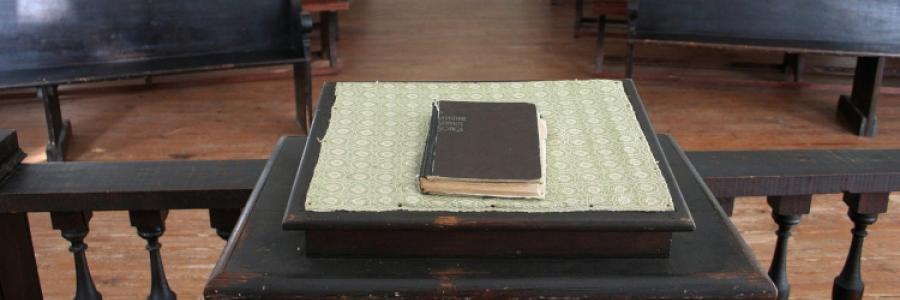Sacred Desk or Sacred Cow? Perspective on the Pulpit (Part 1)
Since the days of the Reformation, Protestant churches have traditionally situated the pulpit front and center in the architecture of their meeting places. The purpose of the pulpit’s conspicuously elevated and prominent position is to symbolize the authority and centrality of God’s Word in the life and ministry of the gathered church. The question we want to raise in this brief article is whether such symbolism is always necessary or helpful in our day.
Discussion
“Your listeners need to see that the Bible speaks to all of life, including politics.”
Body
“If you’re a pastor during this election season, the easy path is to say nothing about politics. You won’t step on anybody’s toes. Nobody will walk out in the middle of your sermon.” - Wayne Grudem
Discussion
How to Preach When Your Congregation is Online and In-Person
Body
“Having written already about preaching to a camera alone at the beginning of quarantine, I hope to share some of what my team has learned now in this present awkwardness as we film a sermon during the week for online viewers and then preach the same sermon to those who reserve spots in our limited outdoor services.” - F&T
Discussion
If you have to preach to a camera: keys to doing it well
Body
“While this is a new challenge for a lot of pastors, it is not a death blow. It is a pivot but one you can still utilize to reach people.” - C. Leaders
Discussion
Text Criticism and the Pulpit: Should one Preach on the Woman Caught in Adultery?
Body
“While there are many ways to consider this topic, this study will look at the issue through the lens of one highly debated passage, the pericope adulterae (John 7:53–8:11).
Discussion
LifeWay research: Pastors think their sermons are shorter than congregations do
Body
“Pastors have a wide range of styles when it comes to sermon length….However, the clear differences by denomination and church size indicate many churches themselves have different traditions when it comes to the length of sermons.” - BPNews
Discussion
“Every imperative of Scripture (what we are to do for God) rests on the indicative (who we are in our relationship with God), and the order is not reversible.”
Body
“The human instinct with every non-Christian religion reverses the order, teaching that who we are before God is based on what we do for God. Thus, any preaching that is distinctively Christian must keep listeners from confusing, or inverting, our ‘who and our’“do.’” - Bryan Chapell




Discussion